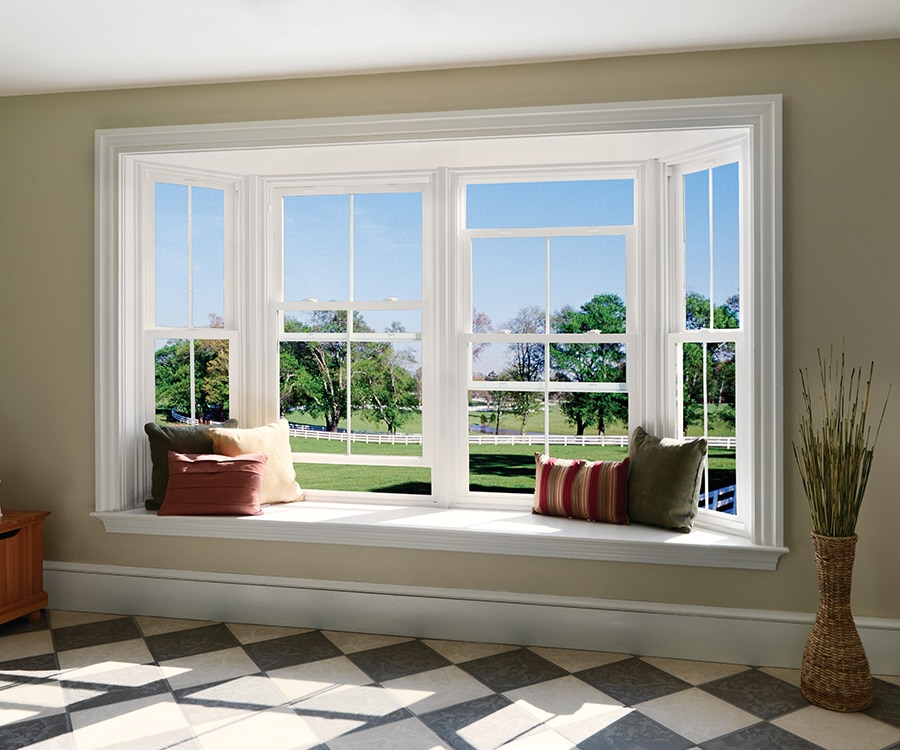How New Replacement Windows Can Improve Indoor Air Quality?
Indoor air quality greatly impacts your health and comfort at home. But many older, drafty windows allow dust, pollen, and other pollutants to enter your house. Gaps and cracks around worn window frames and seals enable contaminants to infiltrate your living space. Sticky, hard-to-operate windows also prevent proper ventilation, trapping stale indoor air. Upgrading to modern, high-performance new replacement windows can dramatically improve the air purity within your home.
New window technologies emphasize tight sealing and easy operation to block pollutants and facilitate airflow. Choosing the right replacement windows not only enhances your home’s aesthetics but also benefits your well-being through improved indoor air quality. This article explores how replacement windows can make the air you breathe inside cleaner and healthier.

What Affects Indoor Air Quality?
- Chemicals: Bad indoor smells and irritation of the eyes, nose, and throat are common complaints. Chemicals or dry air can cause this irritation.
- Suspended Particles: Coarse and fine particles from outdoor pollution, cooking, heating, and chemical reactions cause health issues.
- Microbes: Fungi and viruses may contribute to asthma and airway allergies. Damp buildings with mold are problematic as fungi release allergy-causing substances. Some viruses transmitted in the air increase asthma and allergies.
- Pets and Pests: Indoor pests, dust mites, cockroaches, and mice produce allergens leading to airway diseases, rhinitis, and asthma.
- Humidity: Too low humidity causes irritation and rashes. Too high humidity enables mold, damage, and dust mites.
- Ventilation: Ventilation is critical for indoor air quality. Poor ventilation in offices and schools affects health and performance. Controlled ventilation is essential in tightly sealed buildings.
- Temperature: Extreme cold or hot indoor air is very unhealthy, not just uncomfortable. Air that is too warm or cold impacts people’s health and productivity.
Top Ways New Replacement Windows Can Improve Indoor Air Quality
- New Windows Seal Out Pollutants
Old leaky windows let outdoor pollutants inside your home. Things like pollen, dust, and car exhaust get through gaps in poor seals and old frames. These pollutants make the air you breathe indoors less healthy. Upgrading to new replacement windows with tight seals keeps these contaminants outside where they belong. - Cleaner Indoor Air
Well-installed replacement windows form a better barrier to stop dust and allergens from entering through cracks. Unlike old wood or metal frames, new replacement windows made of vinyl or fiberglass don’t absorb odors, smoke, etc. Weatherstripping and advanced sealing techniques also help replacement windows block substances better. This all contributes to cleaner indoor air. - Better Ventilation Control
Being able to control ventilation properly is key for air quality. New replacement windows open more easily and fully than old sticky windows. This allows you to let fresh outdoor air in when you want. You can also securely close the tight-sealing windows when the air outside is bad, locking in clean air inside. Good ventilation control improves indoor air. - Reduce Humidity and Mold
Excess moisture in a home’s air leads to mold growth, which harms air quality. New replacement windows are better insulated, reducing condensation buildup on surfaces. Proper installation without moisture gaps also helps control indoor humidity. This dry environment prevents mold growth and spore release, improving respiratory health.
- Limit VOC Emissions
Some new replacement windows have Low-E coatings that filter UV light. UV rays can make furnishings off-gas harmful VOCs. Low-E glass reduces this reaction, limiting VOC pollution sources indoors. Other window coatings and construction materials also minimize VOC emissions from the windows themselves.
- Improve Energy Efficiency
There is a link between energy efficiency and air quality. New replacement windows improve insulation, allowing HVAC systems to work less to maintain comfortable temperatures. This increased HVAC efficiency ensures good air circulation without stagnant pollutant pockets. The resulting stable indoor environment has fresher, healthier air to breathe.
To Conclude With: Buy Windows From Window Liquidators For Maximum Indoor Air
When it’s time to replace the windows in your home, be sure to purchase them from Window Liquidators. Their high-quality replacement windows are specially designed to maximize indoor air quality. Window Liquidators uses innovative window frame technology that seals out drafts, pollutants, noise, and moisture. Their windows feature multi-chamber profiles that prevent heat and energy loss far better than standard frames. Additionally, Window Liquidators stocks windows with high-performance Low-E glass that blocks UV rays while allowing in natural light.
With these advanced windows installed in your home, you’ll enjoy cleaner indoor air and a healthier living environment. Your family will appreciate the reduced allergens, odors, and dirt that can aggravate allergy and asthma symptoms. For the best in air quality and energy efficiency, buy your next replacement windows from Window Liquidators.
FAQs
- How do old windows affect air quality?
Old windows let in dust, pollen, and outdoor pollutants due to gaps and cracks, making indoor air less clean. - Can new replacement windows improve ventilation?
Yes, new replacement windowsopen easily to let fresh air in, enhancing indoor air circulation. - Do replacement windows reduce mold?
Definitely. They prevent condensation, lowering humidity levels and stopping mold growth. - Will replacement windows help with energy efficiency along with better air quality?
Yes, new replacement windows not only help improve indoor air quality, but they also offer energy efficiency. Feel free to contact Window Liquidators to learn about our energy-efficient windows.









